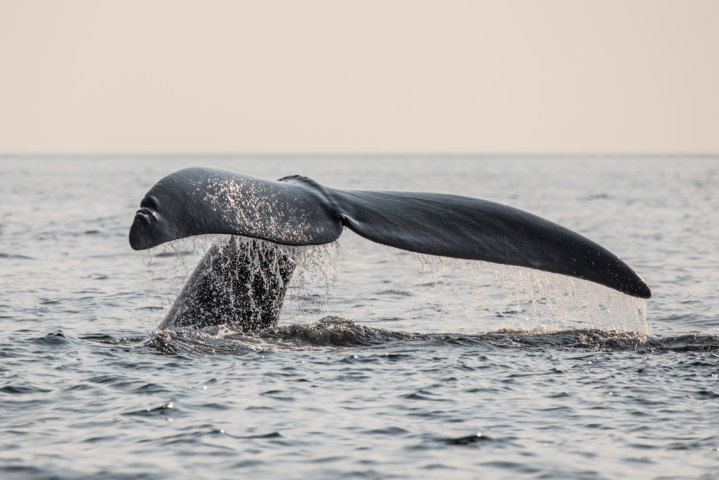North Atlantic right whales are on the move.
The large, docile whales have been spotted at unseasonably high numbers in Cape Cod Bay off Massachusetts, according to scientists in the region.
You can track the right whales’ movements in real time using Fisheries and Oceans Canada’s interactive map.
Scientists estimate there are only about 370 of the critically-endangered right whales alive today.
The Center for Coastal Studies’ Right Whale Ecology Program identified at least 171 whales in Cape Cod Bay earlier this month. The whales often calve in the bay, but scientists said it was unusual to see such a large number of whales in the bay this time of year.
The whales historically summered in the Gulf of Maine and Bay of Fundy where they fed on plankton and—if you were exceptionally lucky—mesmerized tourists with spectacular shows.
Warming waters caused by climate change have affected the whales’ food supply and pushed them further north in search of more bountiful waters. They found this in the Gulf of St. Lawrence—but that’s not all the whales found.
On June 7, 2017, a dead right whale carcass was spotted in the Gulf of St. Lawrence, a channel teeming with commercial fisheries and heavy shipping traffic. This marked the start of a tragic string of losses in which 34 right whales have been found dead (21 in Canadian waters) from being struck by ships or fatally entangled in fishing rope.
Canadian and U.S. governments responded to the deaths—and to the calls for urgent action from organizations such as the Conservation Council and its allies—with a number of measures, including speed restrictions for large vessels and fluid, temporary fisheries closures when whales were spotted near fishing grounds.
You can see what measures remain in place today here, and find a timeline of the federal government’s action on right whales here.
The Conservation Council continues to work with our partners at the Marine Animal Response Society, Canadian Wildlife Federation, Oceans North, regional fishing associations and scientists to reduce threats to right whales and see their numbers start to climb once again.
Despite the threats, our Fundy Baykeeper, Matt Abbott, says right whales are resilient and have rebounded from steep population declines in the past.
“Recovery remains possible, but it will take hard work and continued cooperation between environmental organizations, the shipping industry, and fishing associations,” he says.

